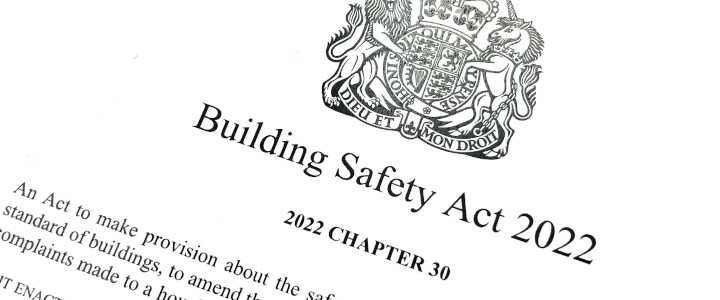16-01-2025
In the wake of the Grenfell disaster, the Building Safety Act 2022 was born. It is aimed at preventing substandard construction, rectifying dangerous and uninhabitable buildings that are a risk to occupiers and those that are high fire risk. The Building Safety Act aims at holding firms and persons accountable both on a criminal and civil basis who were involved in the construction of such buildings including designers, contractors, landlords and suppliers and even personal liability for persons hiding behind the veil of a firm’s bankruptcy. Claims that qualify can be made for building work going back 30 years to June 1992. The Building Safety Act, by example alters other legislation such as the Defective Premises Act 1972, (DP Act) to include the 30 year time limitation to bring a claim.
The legislation is commendable, but to bring a prosecution any matter must be referred to the court, which may affect decisions to start a claim due to cost and time consideratons, particularly smaller or domestic claimants who may not have the resources to start a case for remedy or compensation. There is no option to obtain a decision on rights using ADR, in particular adjudication. However, where the issue arises in a commercial construction contract, adjudication can be engaged. The court appears now to be allowing such following the recent case of BDW Trading Ltd v Ardmore Construction Ltd [2024] EWHC 3235, where BDW alleged fire safety cladding defects on a development in Basingstoke carried out between 2002 and 2004. The dispute was referred to adjudication in 2024, which is circa 10 years after the works were complete. Ardmore were held liable for breaches of contract and BDW were awarded over £14.5 millon by the adjudicator, which was subsequently enforced in the TCC. The claim was brought under the DP Act, one of Ardmore’s arguments at enforcement was that there was no jurisdiction to hear the claim under the DP Act, which the court dismissed. It appears the court is keen to include adjudication into the decision making process, which was an obvious opportunity missed by the legislators.
The implication from BDW v Ardmore is that contractors in construction contracts, can now face historic defects claims referred to adjudication under the DP Act. Contractors should therefore retain good records and it is recommended they never destroy them. I wonder how many records have been kept beyond 6 years, (the simple contract limitation period) and I also wonder if adjudications can succeed where there is no adjudication clause and causation is after June 1992 before 1st May 1998 when the statutory right to adjudicate started in commercial construction contracts.
As can be seen in BDW v Ardmore, claims can be significant, in that case over £14.5 million. Further the most effective way to tackle such claims is to use a construction claims consultant such as Arbicon, who are Experts in defects claims including fire safety, who also have two decades of experience in adjudication advocacy. Arbicon will prepare the claim to the point, quickly and at a lower cost and adjudicate it. If you are also in court at present with a construction contract claim, you can adjudicate without permission of the court, you have the right to adjudicate at any time. In our experience the matter will settle after the adjudication ending the spectre of future costs and sleepless nights.
Call us if you wish to discuss any claim or defence in respect of any matter arising from the Building Safety Act.


